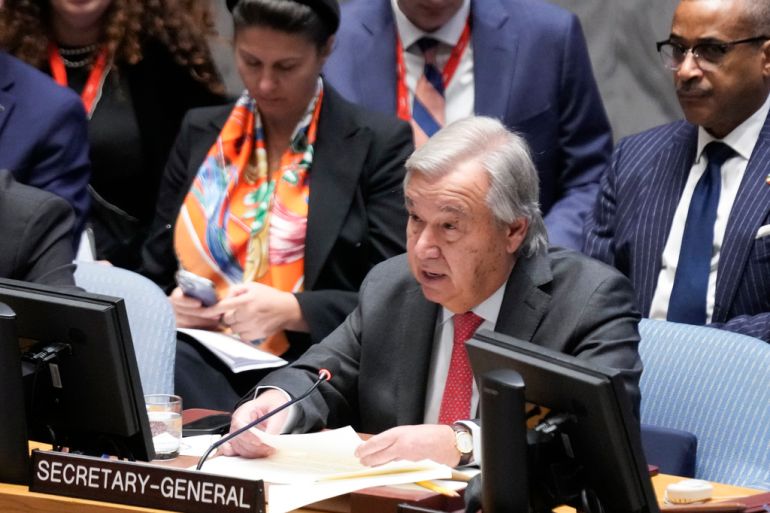In a stirring address before the United Nations Security Council, UN Secretary-General Antonio Guterres issued a compelling plea for a ceasefire in the Gaza Strip, denouncing the “clear violations of international humanitarian law” that have marred the ongoing conflict between Israel and the Palestinian armed group, Hamas. The situation has escalated into a humanitarian catastrophe, with Guterres warning of a broader regional conflagration looming on the horizon.
Antonio Guterres Calls for Protection of Civilians
Guterres, expressing grave concern, urged the international community to prioritize the protection of civilians caught in the crossfire. He emphasized that both sides shared the responsibility to safeguard innocent lives, declaring, “It is important to also recognize the attacks by Hamas did not happen in a vacuum.” While acknowledging the long-standing grievances faced by the Palestinian people under decades of occupation, he condemned Hamas’ actions as “appalling attacks” that cannot justify “the collective punishment of the Palestinian people.”
The Secretary-General also criticized Israel, albeit without explicitly naming it, stating that protecting civilians “does not mean ordering more than one million people to evacuate to the south, where there is no shelter, no food, no water, no medicine, and no fuel, and then continuing to bomb the south itself.” This stance drew sharp criticism from Israel’s UN Ambassador, Gilad Erdan, who deemed Guterres’ speech “shocking” and claimed it showed an “understanding for terrorism and murder.”
Israel-Hamas Conflict Escalates Amid Ongoing Bombardment
The conflict’s origin dates back to October 7 when Hamas initiated a surprise attack on southern Israel, leading to significant casualties. Israel retaliated by cutting off essential supplies, including water, food, fuel, and electricity, to Gaza’s 2.3 million residents. The UN labeled this as a form of collective punishment. Israeli forces also launched an offensive, resulting in the deaths of at least 5,791 people, according to Gaza authorities.
Widespread displacement of more than one million people has occurred, with Israel mandating northern Gaza residents to relocate to the south. Nevertheless, Israeli airstrikes have continued unabated across the territory, exacerbating the crisis.
Plea for Emergency Aid as Humanitarian Crisis Deepens
United Nations agencies have fervently called for the unhindered provision of emergency aid to Gaza, describing the situation as dire and akin to being “on our knees.” The existing aid flows into Gaza, primarily from Egypt, have been meager, insufficient to address the overwhelming need. Guterres characterized these limited deliveries as “a drop of aid in an ocean of need.”
The scale of the crisis has prompted a growing concern that, without immediate action, the humanitarian situation in Gaza will further deteriorate, increasing the suffering of innocent civilians who are bearing the brunt of the conflict.
In these turbulent times, the international community faces the challenging task of mediating a ceasefire and addressing the dire humanitarian needs in Gaza. Guterres’ impassioned plea for the protection of civilians and the urgent delivery of aid underscores the gravity of the situation and the necessity for immediate action to prevent further loss of life and alleviate the suffering of those affected.
















